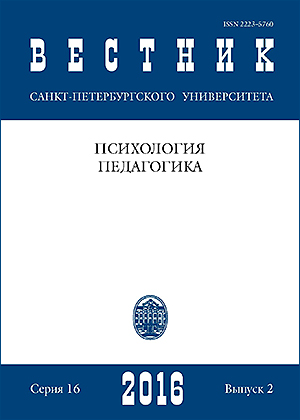Cognitive factors of differences in vaccination patterns: the perceived risks of action and inaction
Abstract
In recent years, worldwide decrease in vaccination coverage due to the negative attitudes of the population towards vaccination has been detected. Th is article has been tasked to quantify the applicability of the model of health beliefs (Health Belief Model) and its components to predict the vaccination patterns in a Russian population sample (city of Saint-Petersburg). We used the subsample of persons who have minor children (N = 260) from a representative telephone survey of adult residents of St. Petersburg. About 20% of the respondents have incompletely vaccinated children; including 4% vaccinated incompletely in the absence of medical grounds. Th e most predictive component of the model in relation to the vaccination pattern is a perceived vaccine safety (barrier). Th e perceived disease susceptibility and severity of preventable diseases did not act as signifi cant predictors of the vaccination pattern.
Keywords:
Health Belief Model, vaccination, vaccination refusal, perceived risks, perceived benefits, Russia
Downloads
References
Литература
References
Published
How to Cite
Issue
Section
License
Articles of "Vestnik of Saint Petersburg University. Psychology" are open access distributed under the terms of the License Agreement with Saint Petersburg State University, which permits to the authors unrestricted distribution and self-archiving free of charge.




